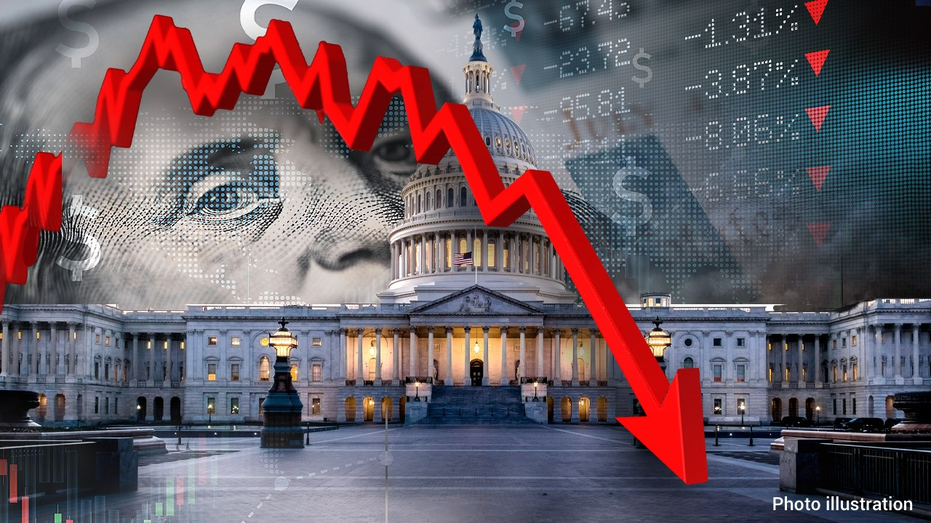Harvard economist warns US headed for 'significant' recession
The 'chances' of a recession are 'really pretty high' in 2023, according to Ken Rogoff
Fed will be 'very patient' in getting rates to their peak: Kenneth Rogoff
Harvard University economics professor and former IMF chief economist Kenneth Rogoff argues the Fed's rate hikes are 'putting a lot of pressure' across the economy.
Harvard economist Kenneth Rogoff issued a dire warning about the U.S. economy one day after Federal Reserve Chairman Jerome Powell maintained a hawkish stance.
"You really have to look at the world, which is in bad shape," the economics professor told "Mornings with Maria" on Thursday. "So it's very hard for the United States to resist that. I worry that not only we're going to get a mild recession, I think the chances that we've got a significant recession are really pretty high."
The Federal Reserve on Wednesday raised its benchmark interest rate by 75 basis points for the fourth straight month as it struggles to bring runaway inflation under control, a move that threatens to further slow U.S. economic growth and exacerbate financial pain for millions of households and businesses.
In his speech, Powell indicated it’s too soon for the Fed to pause or pivot its stance on rate hikes.
"It is very premature to be thinking about pausing," Powell said at Wednesday’s press conference. "So people, when they hear lags, they think about a pause; it's very premature, in my view, to think about or be talking about pausing our rate hike. We have a ways to go."
HOUSING MARKET WILL LEAD US INTO A RECESSION, AND WILL LEAD US OUT: MBA FORECAST
Rogoff predicted that the bank will be "very patient" in bumping rates up to their intended peak.

Harvard University's Kenneth Rogoff warned of a "significant" recession on "Mornings with Maria" on Thursday. (Fox News)
"If they really wanted to get inflation down in the two to three percent range on a sustained basis, they might need a Fed funds rate at six or higher," he explained. "I don't think they're going to go there, but that conversation's yet to come."
Earlier this week, former Kansas City Federal Reserve President and CEO Thomas Hoenig told host Maria Bartiromo he had concerns that shrinking the balance sheet and taking liquidity out of the market will create dislocation.
"You hear people talking about liquidity in the Treasury market right now, there’s still a lot of liquidity in that market, and pulling that out means you begin to constrain the economy and, I think, create uncertainty around the financial sector," Hoenig had said. "So that will be an add-on to the inflation uncertainty as we move forward from here."
Responding to Hoenig’s comments, Rogoff argued rate hikes are "much, much more significant" than reducing liquidity in the market.
Fed's Powell makes it clear more rate hikes to come
FOX Business' Edward Lawrence asks Jerome Powell how much of a headwind government spending is to the Fed's inflation target and its plans for future rate hikes.
"Maybe Thomas Hoenig is right, but the interest rate hikes are sure putting a lot of pressure across the board," Rogoff said. "[Powell's] saying we're going to keep raising rates because we know what to do if we over-tighten, we'll cut. It's funny, it's a mirror image of what they were saying a while ago: ‘Well, we don't want to raise rates because we know what to do if there's inflation, but we don't know what to do when there is a recession.’"
When asked about the October jobs report, which is expected to show a gain of 200,000 jobs and a 3.6% rise in unemployment, Rogoff predicted that the labor sector will soon catch up with rate hikes.
"Productivity is just terrible, and is it that really wages are higher than they seem because of changes in working conditions, employers are distracted by pressures to take on social issues, or just a global phenomenon? I don't know what it is," the economist admitted, "but it's a real disconnect between what's going on with growth and what's going on with labor."
GET FOX BUSINESS ON THE GO BY CLICKING HERE
Fed should be ‘very careful’ to ‘not signal’ a future move that could create market ‘volatility’: Thomas Hoenig
Former Kansas City Federal Reserve President and CEO Thomas Hoenig on the Fed’s November meeting and how the bank will address inflation and interest rates.
As major bank CEOs signal a strong consumer for the holiday season and into the remainder of the year, Rogoff echoed similar sentiments, saying the impact of the Fed’s rate hikes is a "2023 story."
"The interest rate hikes take a long time to really eat at the underlying economy," the Harvard economist said. "Yeah, they hit the stocks really quickly, but employment output — lots of surveys of all the literature suggest six to 12 quarters, even more. So I think that all lies ahead."
FOX Business’ Megan Henney contributed to this report.


